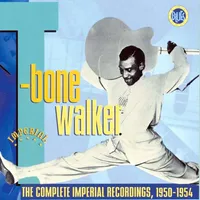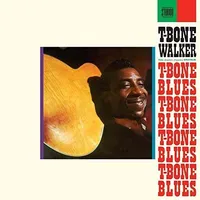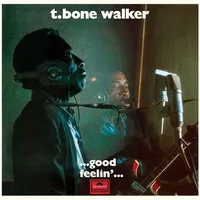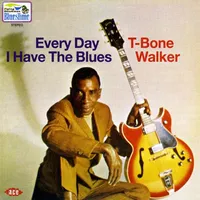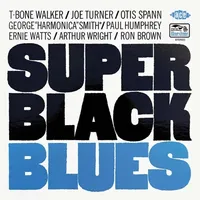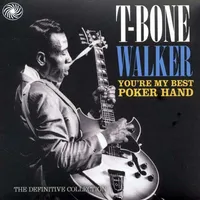The man who inspired BB King, Chuck Berry and Jimi Hendrix: The T-Bone Walker albums you should hear
T-Bone Walker had an eye-popping live show, soulful vocals and a supple guitar style that provided a blueprint for what we know as modern blues today. These are his best albums…
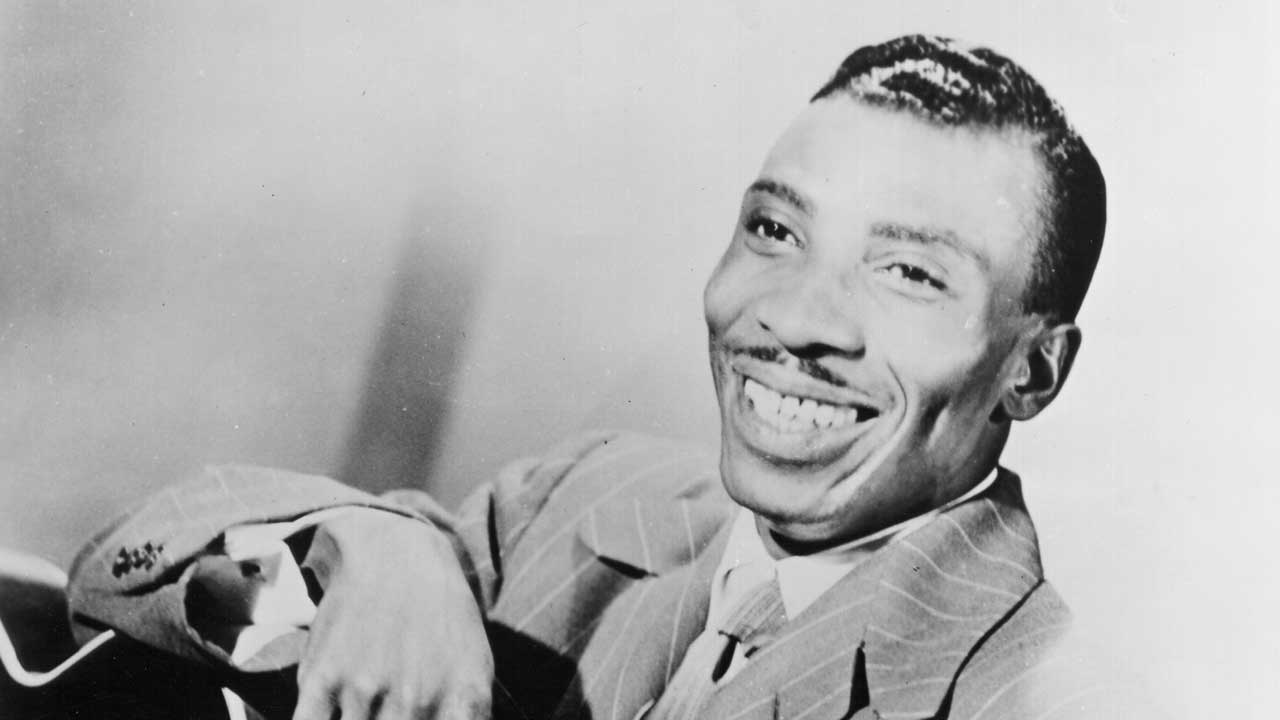
One of the most influential guitarists of all time, Aaron Thibeaux ‘T-Bone’ Walker was a true one-off. A flamboyant showman, Walker was central in the shaping of both jump blues and electric blues.
Born in Linden, Texas on May 28, 1910 to a musical family, and mentored by family friend Blind Lemon Jefferson, he made his recorded debut in 1929 with the single Wichita Falls Blues for Columbia Records under the name Oak Cliff T-Bone and with pianist Douglas Fernell.
A decade later he was stationed in Los Angeles’ Central Avenue and singing in Les Hite’s Cotton Club Orchestra, then from 1941 he was helming his own band. In 1942 he recorded Mean Old World and I Got A Break Baby with pianist Freddie Slack for Capitol, which introduced his soulful vocals and supple guitar style. It provided a blueprint for what we know as modern blues today.
At LA independent Black & White Records from 1946 to ’48, he continued to take huge strides, most notably with the self-penned Call It Stormy Monday (But Tuesday Is Just As Bad). Recorded in Hollywood in September 1947, it fanfared his deliquescent west coast blues with jazz leanings. BB King was inspired to take up guitar on hearing it; with Bobby Bland, Eric Clapton, Buddy Guy, Freddie King, John Mayall and many more covering it, the song is now a standard.
Walker also returned to the song, most notably on 1959’s T-Bone Blues album and in 1968 on Stormy Monday Blues for Bluesway Records.
Live, he was hugely influential too, playing guitar behind his back, over his head, between his legs… and his flash, peacocking onstage persona resonated with both Chuck Berry and Jimi Hendrix.
He continued to make waves at Imperial Records from 1950 to ’54 and stints with Atlantic, Bluesway and Polydor also produced great work, but ill health took its toll at the start of the 70s. In 1974, he suffered a stroke, then after another stroke, he caught bronchial pneumonia and died aged 64 on March 16, 1975.

Complete Imperial Recordings 1950-1954 (EMI, 1991)
Recorded for the most part in Los Angeles, but also in New Orleans and Detroit between April 1950 and June 1954, these 52 tracks spread over two discs capture T-Bone Walker in his prime. Having made his name at Capitol and Black & White on a series of innovative blues, he arrived at LA’s Imperial as captain of the vanguard, and his confidence resulted in a tougher, more assured sound.
What’s most astonishing about this material is his ability to deliver just about any style in any studio location with any personnel; his first session in LA in April 1950 with his road-fit band, led by Big Jim Wynn on baritone sax, produced red hot R&B with the blistering instrumental Strollin’ With Bones, wailing balladry on the agonising Baby Broke My Heart, hoppin’ jump blues with Glamour Girl, dancefloor groove with The Hustle Is On and mournful blues with You Don’t Love Me.
In March ’53, in New Orleans with producer Dave Bartholomew, tracks such as I’m Still In Love With You and Railroad Station Blues framed his intuitive licks with an attractive rollick’n’roll. In October ’53 and at his swansong session for the label in June ’54, he was in Detroit with the TJ Fowler Band, which also produced some top notch sides in Vida Lee and My Baby Is Now On My Mind. It’s an amazing body of work, and one that has rarely been matched in any idiom.
Walker’s 1960 album captures him with a stellar cast. In the windy city in April 1955, with Jimmy Rogers and Junior Wells he delivers the unimpeachable Play On Little Girl; at the same session with tenor saxist Eddie Chamblee, he produces the entrancing Papa Ain’t Salty.
In LA in December 1956 he reworks Call It Stormy Monday. A year later, with guitarists Barney Kessel and RS Rankin, he creates the explosive instrumental, Two Bones And A Pick.
‘My name is T-Bone Walker, that means, I sing nothing but the blues,’ T-Bone states on the piano intro to this 1969 outing. But this is a different kind of blues, one drenched in Stax-like horns and Hammond organ trills on Every Day I Have The Blues and Poontang and a big band swing on Long Lost Lover and I Wonder Why.
His band of Paris sessioneers including Manu Dibango on piano, organ and sax, is first rate and a perfect cushion for Walker’s energy and enthusiasm.
Every Day I Have The Blues (Ace, 2014)
Until Ace reissued this 1969 album made for Bob Thiele’s Bluestime label it was little celebrated, and yet it is one of the all-time blues classics.
The title cut aligns the blues to funk; Vietnam, scribed by Thiele, is potent protest; John Lee Hooker’s Shake It Baby is, here, the swinging cat’s meow, Walker’s guitar pinned to blaring horns and fuzz guitar; on guitarist Louie Shelton’s For BB King, the teacher pays tribute to his pupil.
Various: Super Black Blues (Ace, 2014)
Recorded two months after Every Day I Have The Blues, Walker plus his labelmates Otis Spann and Joe Turner take it easy on four city blues.
Three are authored by T-Bone and capture a band perfectly poised as conversations flow between voice, guitar and piano. The fourth, a cover of Here I Am Broken Hearted is an exercise in intuition. There’s no ego, just the coming together of Kansas City, Chicago and Texas styles.
You’re My Best Poker Hand (Fantastic Voyage, 2011)
The definitive best-of, 1995’s Complete Capitol And Black And White Recordings, a 75-track, three-CD box, is sadly out of print on CD, although it is available via streaming platforms.
A clutch of these tracks – T-Bone Blues, I Got A Break Baby, Mean Old World etc – however are collated on this three-CD set, an impressive anthology drawn from Walker’s entire career. Aside from those early tracks, cherry picks also come courtesy of Imperial and Atlantic.
...and some "tributes" to avoid
You can trust Louder
T-Bone Walker never took a left turn, and while some compilations duplicate one another, none of them are bad. Such is his high standing, few have dared to cover his songs unless they are confident of doing a good job. But there are exceptions: avoid Pat Boone’s Stormy Monday from 1960 and Mick Hucknall’s take in 2008. Hugh Laurie and Pat Benatar covering Evenin’ in 2013 and 1991 respectively are hard on the ears too.
Sign up below to get the latest from Classic Rock, plus exclusive special offers, direct to your inbox!
